TELEGRAPH VOICES: Are we doing enough to tackle plastic pollution in Sheffield?Â
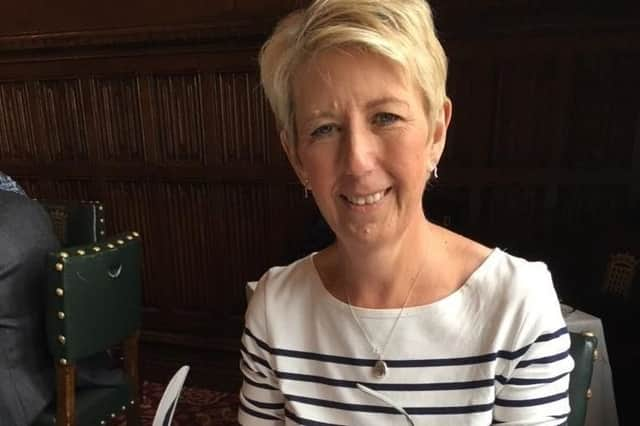

Following a pledge earlier this year by more than 40 companies, including major supermarket chains, to ensure that all plastic packaging they use in the UK will be reusable, recyclable or compostable by 2025, it seems the world is finally responding to this call for action.Â
But are we doing enough to tackle plastic pollution locally in Sheffield?Â
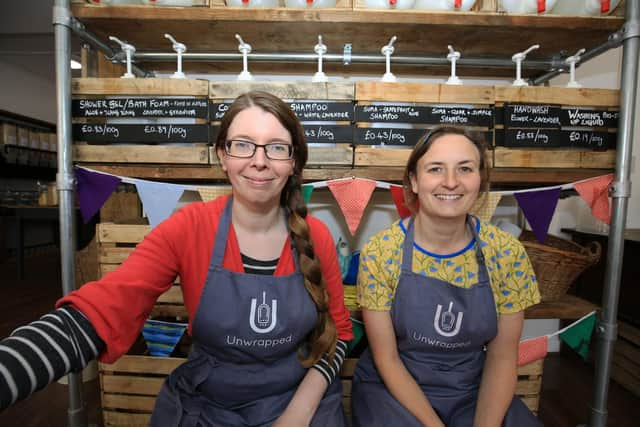

Advertisement
Hide AdAdvertisement
Hide AdWe asked the experts as part of our latest Telegraph Voices feature. Â
Â
Dr Rebecca Atkinson and Dr Kirsty Burnet, co-owners of zero waste shop Unwrapped in CrookesÂ
The '˜plastic problem' and the issues surrounding single use packaging are in the forefront of our collective psyche thanks to Sir David Attenborough and Blue Planet.
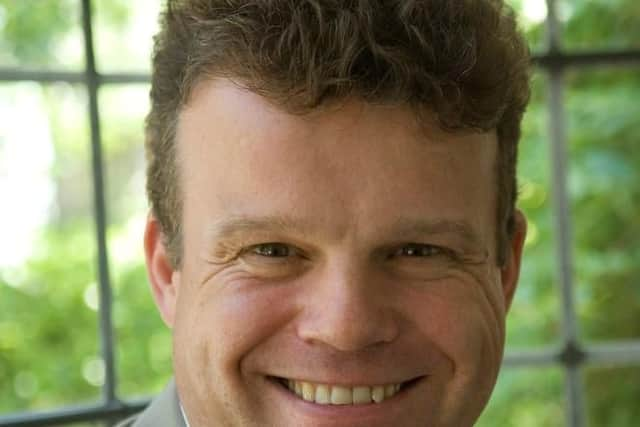

As scientifically-trained environmentalists, we knew we could contribute to local action to address the plastic problem. This led us to open Unwrapped, a zero waste grocery shop, in Crookes.
Advertisement
Hide AdAdvertisement
Hide AdFirstly, we empower our customers to reduce packaging waste, including by reusing their old plastic containers. Secondly, by removing the responsibility of recycling from the consumer to the retailer, we are able to put pressure on suppliers to reduce their packaging, and to supply us with produce in larger volumes.
Our overall aim is to provide a local mechanism to reduce our collective environmental footprint. We are not just about reducing plastic waste, but we have saved thousands of pieces of single-use packaging since we opened.
Our shop provides a way for people to make changes that they feel they are able to, and even if they are small, these small ripples of change make huge waves when replicated on a large scale.
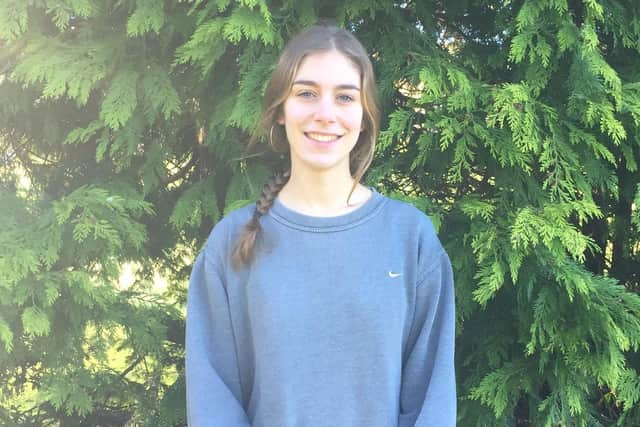

More broadly, local government can do more: bins should be emptied regularly, as plastic from overflowing bins enters and damages the environment.
Advertisement
Hide AdAdvertisement
Hide AdOur city is lagging behind in its ability to recycle household plastic; only plastic bottles go in our blue bins, although these are the types of single-use plastic that are most easy to avoid!
Even more broadly, we'd like to see a shift to a circular economy where resources are kept in use for as long as possible, and a move away from our current linear manufacture-use-dispose system.
Angela Smith, MP for Penistone and Stocksbridge
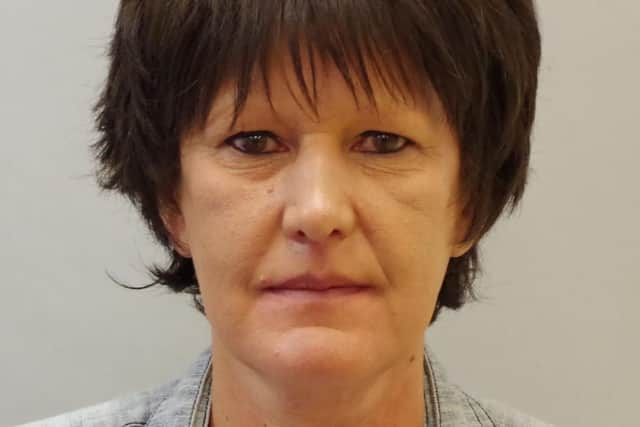

There is no doubt the use of plastics has not only revolutionised our world, it has arguably also helped to reduce our carbon footprint.
For instance, plastics in cars have made them lighter and therefore more fuel efficient, cutting harmful greenhouse gases. The use of plastics in food manufacture keeps food fresher for longer, meaning less food is wasted.
Advertisement
Hide AdAdvertisement
Hide AdThe downside, however, has been the creation of a use once, throwaway society.
A walk down any street in Sheffield testifies to that with empty crisp packets, bags, single use cups, wet wipes along with many other discarded items just thrown away.
And of course, what starts in our streets and rivers eventually ends up in our oceans. It has been estimated that some 140 million tons of plastic finds its way into our oceans each year and that in a few short years the number of plastic objects will outnumber all the sea creatures in the world's oceans. To make matters worse, it takes some 20 years for a plastic bag to decompose, with plastic bottles taking some to 450 years.
While here in the west there is at least a realisation of the damage being done by plastics and governments are starting to talk about the problem, in the developing world the problem is also huge and getting worse.
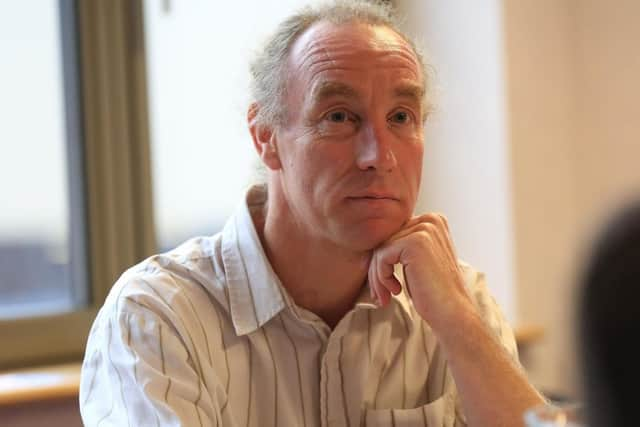

Advertisement
Hide AdAdvertisement
Hide AdIt is estimated just two per cent of the plastic in our oceans originates from western countries and 90 per cent of all the plastic in the sea comes from just 10 rivers in Asia and Africa. All these rivers are contained within countries which lack the ability to deal with a crisis on this scale.
We must, though, deal with this. Not only individually, but as nations and as a global community.
Â
Tony Ryan OBE, professor of physical chemistry at the University of SheffieldÂ
Plastic can't be evil, it's inanimate, it's plastic abuse that is morally wrong.
Advertisement
Hide AdAdvertisement
Hide AdWe see plastics most often in packaging and very little '“ less than three per cent '“ actually gets recycled.Â
It's cheaper for the manufacturer to make new plastic packaging and get the consumer throw the used plastic away - because those costs are borne by society in general and not the packaging producer or waste disposer in particular.
The key issue for consumers is knowing how and when packaging provides a real benefit, in terms of food longevity and preventing waste and balance that against the fate of the plastic materials.
Different kinds of plastic have to be separated for recycling because they contain long chain molecules (polymers) that don't mix at the molecular level.
Advertisement
Hide AdAdvertisement
Hide AdThat's why separating plastics at the recycling centre is so important but choices made by many brands for marketing purposes mean that some plastics can never be recycled.
A sports drink can have three different and incompatible polymers. All three components can be individually recycled but they are rarely separated other than by shredding.
Fruit and veg are examples of excess plastic because they already come in a protective skin. In many cases the extra packaging serves no practical purpose and yet less than 10 per cent of supermarket fresh fruit and veg is offered '˜loose.'
There is currently eight billion tons of plastic on the planet with 40 billion tons projected to be there by 2050.
Advertisement
Hide AdAdvertisement
Hide AdThe good news is that Sheffield isn't adding very much to this as we have a recycling scheme and because we incinerate the majority of our household waste we send very little to landfill.
Could we do better? Of course we could. The recycling scheme could get us to do more work and separate the different kinds of plastic '“ and this would mean Veolia would have to provide more bins '“ much less convenient for all of us.
Single use plastic is a complex issue, in some cases very useful, in others just the opposite, but consumers can make conscious choices, businesses act responsibly and governments enforce good policy to rid ourselves of plastic pollution because at the moment we are polluting to generate profits for companies and to make things cheaper for us.
Â
Mel Kee, students' development officer at the University of Sheffield Students' UnionÂ
Advertisement
Hide AdAdvertisement
Hide AdIn April, we saw the opening of Sheffield's first Zero Waste shop in Sheffield Students' Union, selling loose products and reusable items and aiming to combat the harmful effects of excessive waste, particularly plastic waste.
Reducing plastic waste has been at the forefront of the SU's developments since 2011, when plastic water bottles were taken off the shelves in favour of free water fountains.
Since then there have been many more campaigns to tackle plastic pollution, including the launch of '˜Campus Cup', the UK's first coffee cup return scheme across the SU and University.
We've also seen plastic pollution awareness taking hold across the city. Bars, restaurants and clubs have been signing up to the SU's #StrawFreeSheffield campaign, pledging to only provide straws on request and switching to biodegradable where possible.
Advertisement
Hide AdAdvertisement
Hide AdBut is Sheffield doing enough? Having spoken to residents it seems to be a little known fact that the kerbside collected recycling should consist exclusively of cardboard, paper, plastic bottles, glass and metal tins and cans.
This means any plastic packaging - pots, trays or film '“ that you put in your blue bins are filtered out and sent to landfill.
Recycling should be a great first step for us all to reduce our waste, but we are not reaching its potential.
49 per cent of UK councils collect these plastics and recycle them, and Sheffield should be doing the same.
Advertisement
Hide AdAdvertisement
Hide AdAlthough recycling is not an absolute solution to our waste problem, it limits the need for new resources and greatly reduces the opportunity for plastics to end up on land or in the ocean, damaging our environment.
Sheffield could, and should, be at the forefront of fighting plastic pollution, but our recycling scheme lets us down.
We need a well-publicised, transparent and all-inclusive recycling scheme, alongside kerbside food waste collection, to match population ready and eager to tackle this pressing issue.
Â
Â
Iren Wadsworth, a member of the Sheffield Litter Pickers group
Â
Advertisement
Hide AdAdvertisement
Hide AdPlastic is highly durable, isn't going away and we need to all do something now to tackle the pollution problems.
The only sure way of doing that would be to stop using plastics altogether but that isn't going to happen anytime soon. However, we can all make the effort to use less of it, recycle more and make sure every bit of it ends up in a bin.
If you have a local greengrocers where you can grab as little or much as you need without the plastic packaging please shop there.
We can all swap a plastic item or two for an alternative - a bar of soap rather than a pump bottle or a reusable glass water bottle rather than a single use plastic one are simple starts.
Advertisement
Hide AdAdvertisement
Hide AdThe plastic items that can be recycled vary widely across the country. In Sheffield, the only plastic items that we can put in our recycling bins are plastic bottles. This is a crying shame when in fact the majority of plastics can be recycled rather than incinerated.
The one thing I would like is for the minority to follow the majority and make sure all our plastic and other rubbish ends up in a bin and not in the environment.
Â
Douglas Johnson, Green Party councillor for City WardÂ
Â
Sheffield's a long way from the plastic-filled oceans but we still see plenty of discarded bottles blocking drains.
At least we now see far fewer plastic bags in trees. The 5p charge was a success, reducing consumption of plastic bags by 85 per cent.
Advertisement
Hide AdAdvertisement
Hide AdPerhaps this proved they weren't really needed all along. Progress sometimes means going back in time to when everyone carried their own, reused shopping bag!
As well as plastic bags, bars in Sheffield are cutting down on the huge number of plastic straws being handed out. Coffee shops are becoming used to more people asking for coffee in reusable cups.
On hot summer days, when you take the kids out, they always want cold drinks. Sheffield has new exciting plans to offer free drinking water from accessible, public water fountains.Â
Refilling your own bottle instead of buying new ones means less plastic consumption and waste; drinking fresh water instead of sugary drinks is better for health, obesity, diabetes and tooth decay. And best of all, it's free!Â
Advertisement
Hide AdAdvertisement
Hide AdThe original '˜Refill'Â scheme in Bristol asks retailers to offer free refills of tap water on request. Participating shops display a sticker '“ it's that easy. It's good for small businesses as it encourages footfall.
Now you can fill up for free anywhere in Bristol city centre. The first places in Sheffield, like Marmadukes on Norfolk Row, are now taking part. I'd like to see a lot more local businesses take up the challenge.